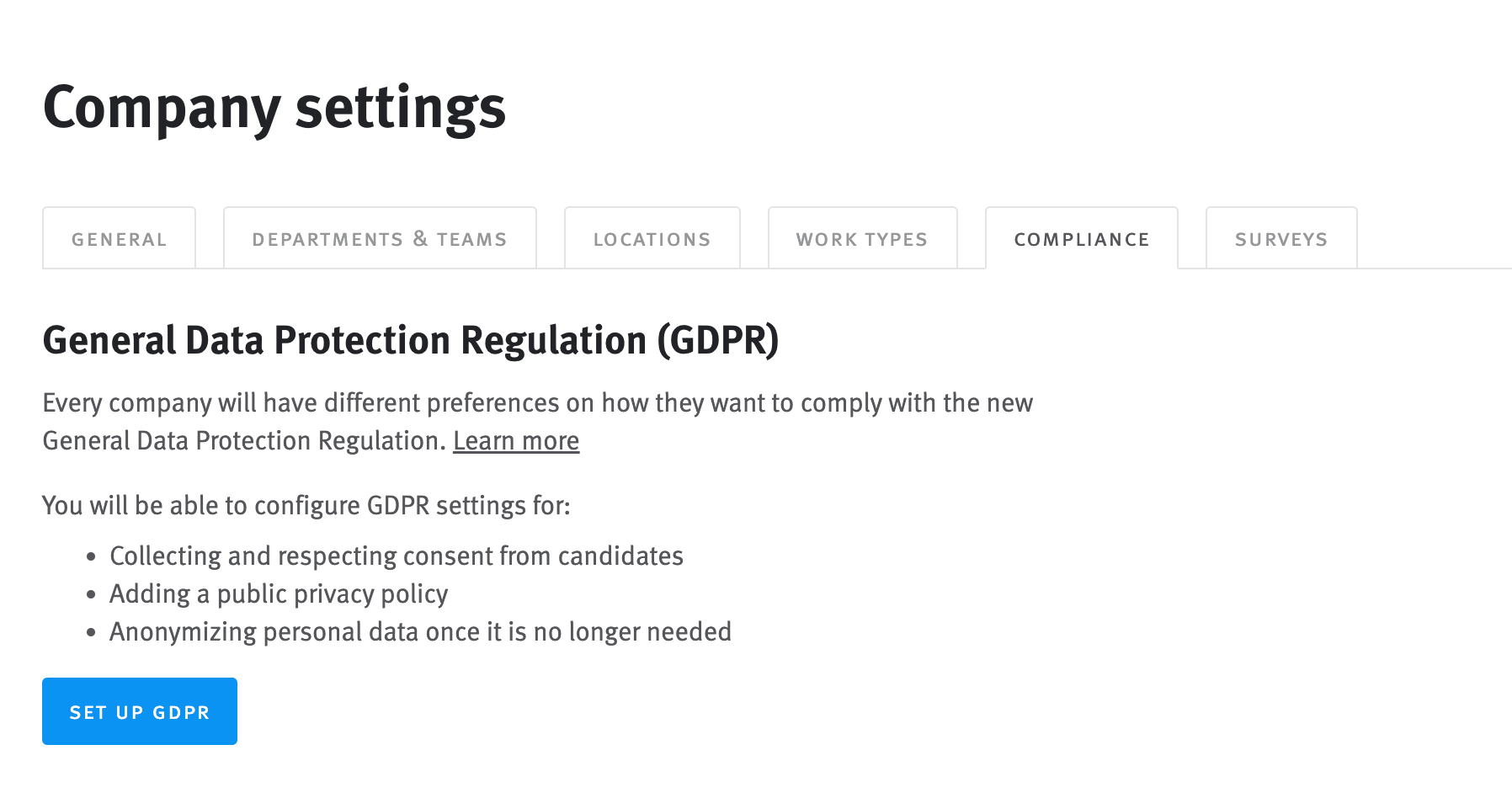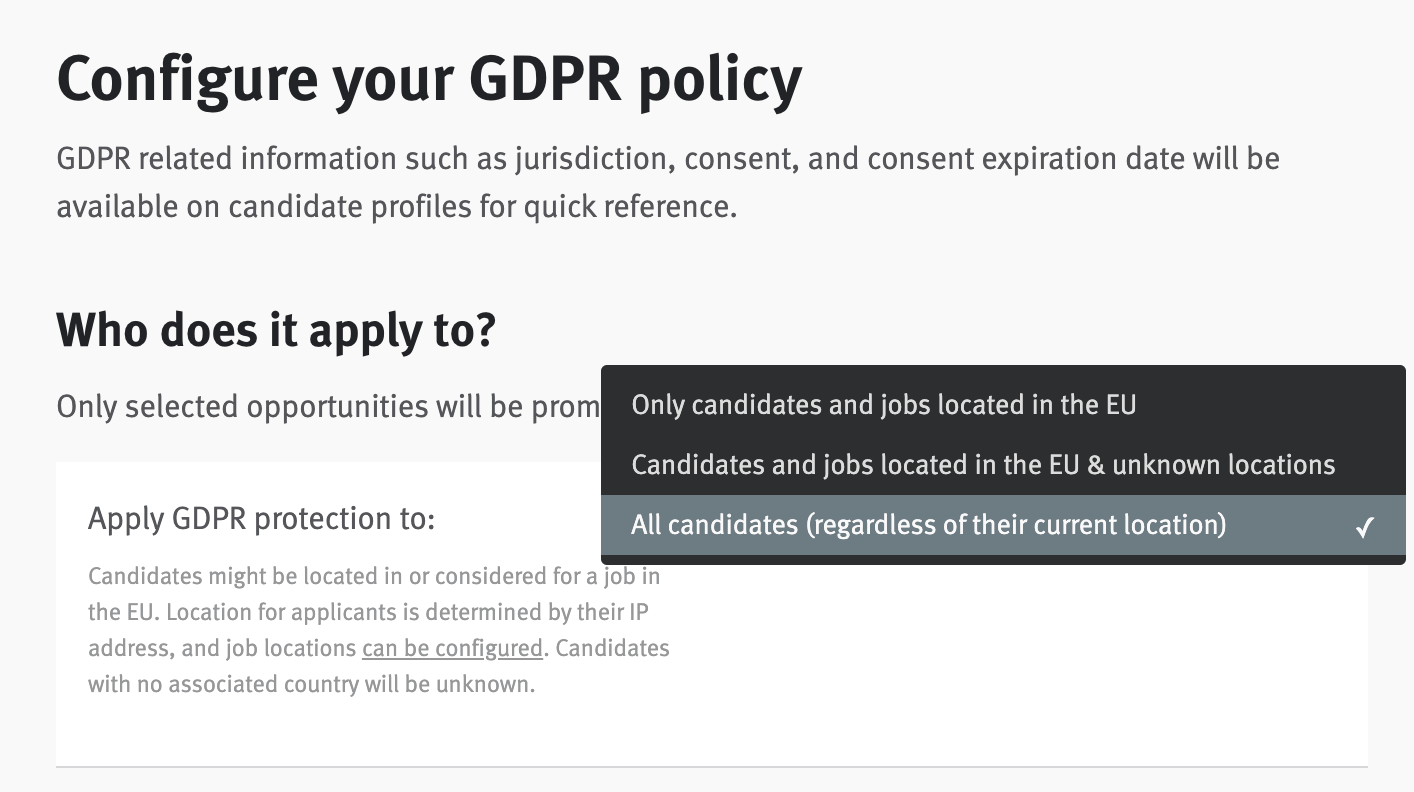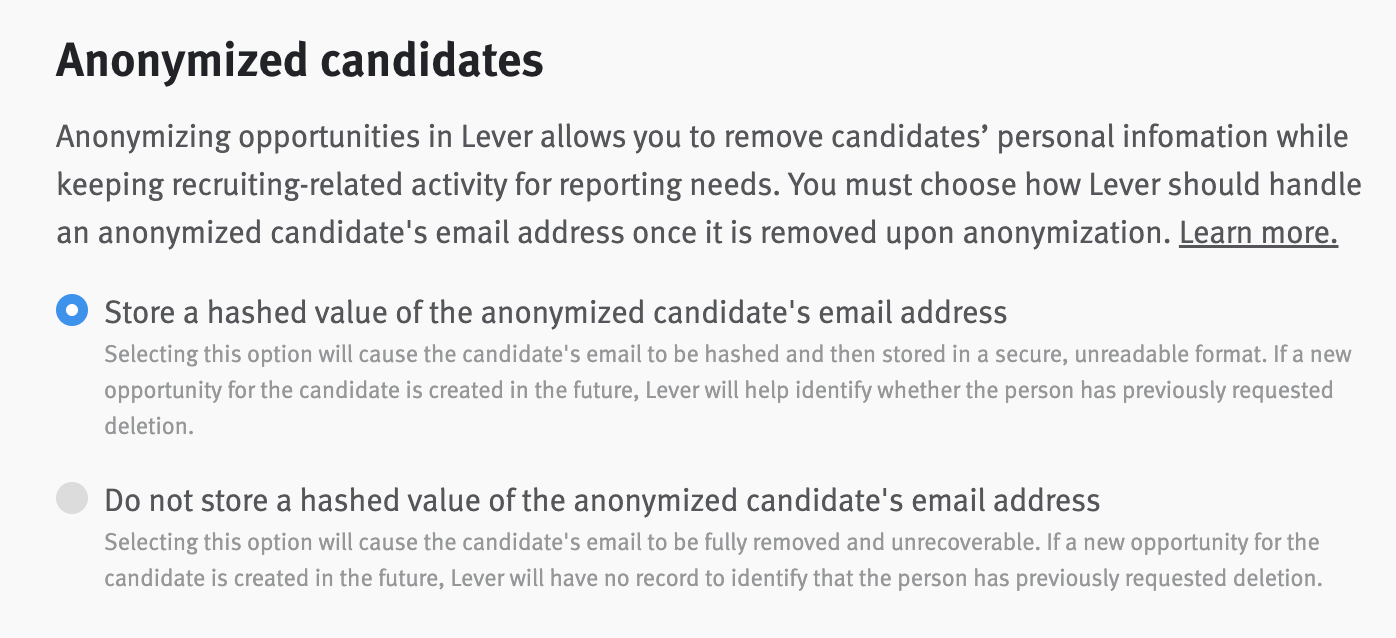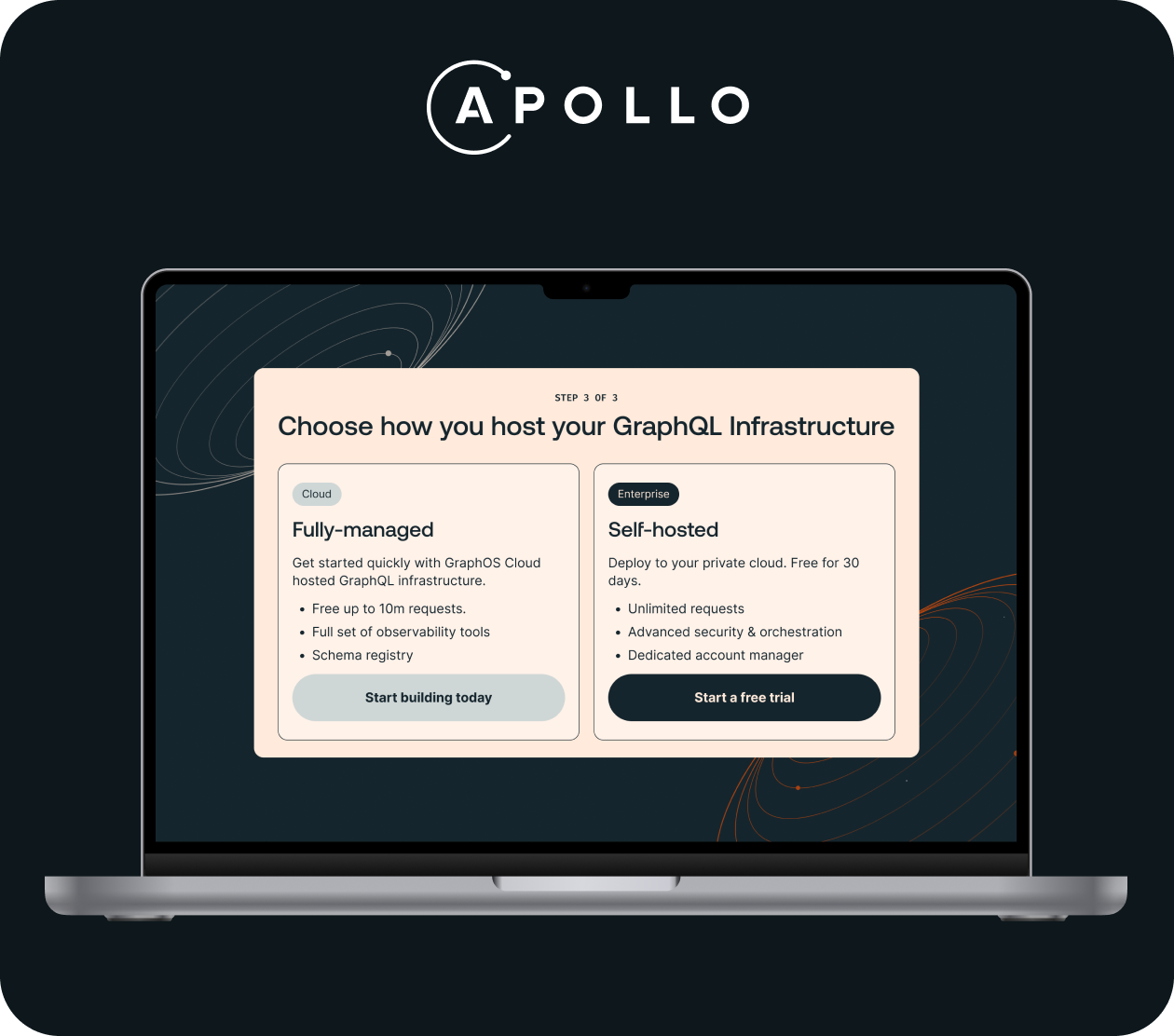UX for GDPR compliance & regulations while protecting $2M in revenue
I led UX design for Lever’s first self-serve GDPR compliance portal—helping customers manage privacy at scale. This work reduced legal risk, cut support burden, and drove $1–2M in retention revenue by making complex data policies actionable and transparent.
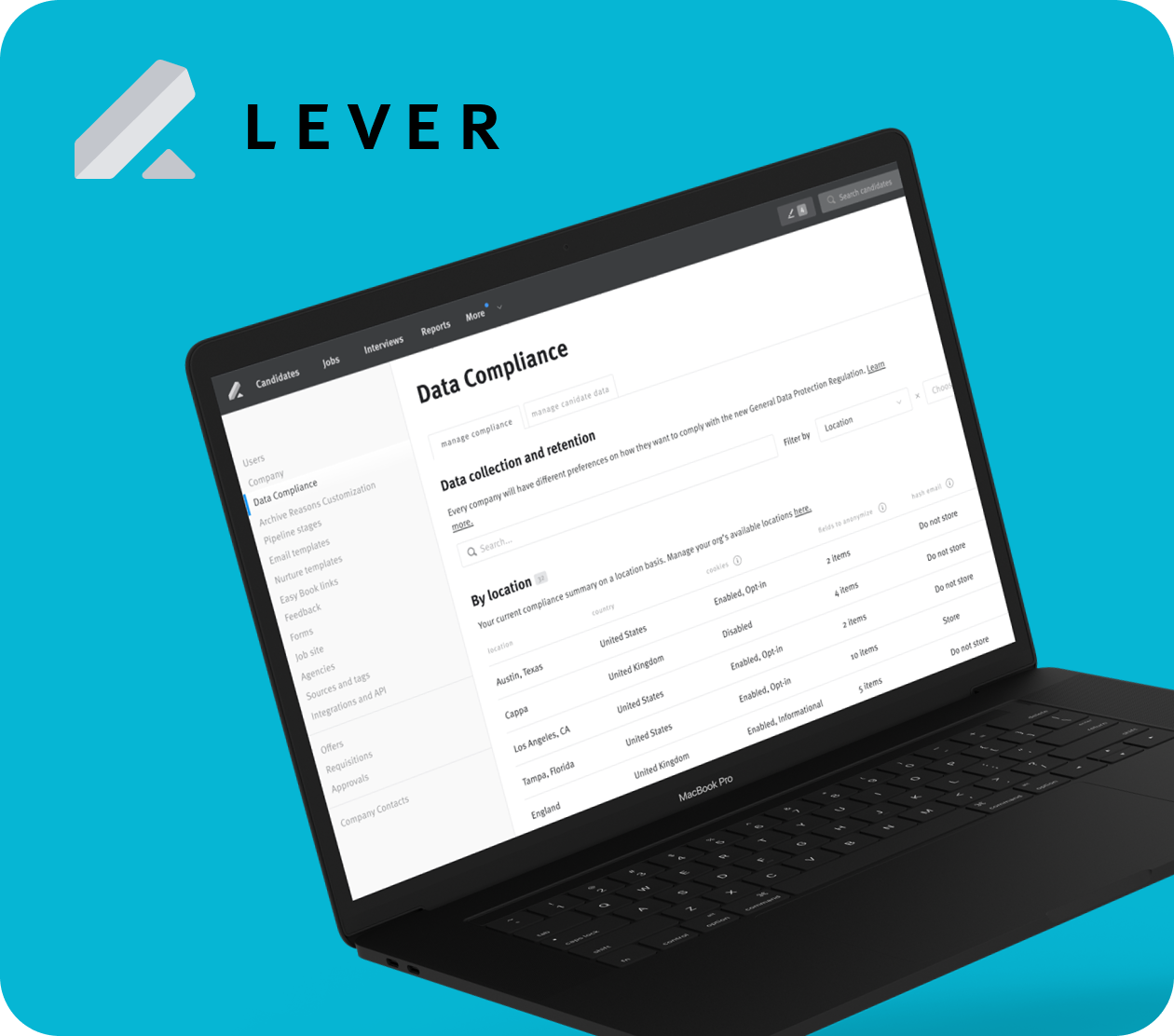
Overview
GDPR (General Data Protection Regulation) transformed the expectations global companies had around data privacy — requiring products to give users more control over their personal data, and organizations to demonstrate compliance in real time. For enterprise clients, data governance wasn’t just a nice-to-have, it was a legal and operational requirement tied directly to renewals, security reviews, and platform trust.
To meet that need, I led the design of Lever’s first self-serve GDPR portal, a centralized experience that transformed compliance from a support-driven burden into a trusted, built-in product capability. The work gave customers full control over their data retention policies and privacy workflows, while reducing risk for both users and the business.
Outcomes:
- Contributed $1–2M in retention revenue by resolving key renewal blockers
- Reduced support overhead tied to manual compliance requests
- Strengthened Lever’s position in procurement and legal reviews by demonstrating compliance readiness
- Created scalable design and system patterns for privacy, governance, and auditability, unlocking future compliance capabilities
Goals
- Empower customers to manage compliance independently
- Ensure regional privacy needs could be respected and automated
- Reduce support intervention in sensitive workflows
- Meet renewal and security audit expectations for enterprise clients and improved retainment
My role
I led the end-to-end design of our GDPR portal, translating legal, technical, and user needs into a scalable, productized experience. The solution needed to meet strict compliance requirements while remaining intuitive and self-serve for non-technical users.
- Mapping backend data structures and how candidate data flowed across features and 3rd-party tools
- Defining role-based access controls to ensure appropriate permissions for viewing, deleting, and exporting data
- Creating friction-informed UX patterns for high-risk tasks (multi-step confirmations, audit trails, success verification)
- Creating custom dashboards for visibility into compliance status and audit logs, enabling transparency for legal teams
- Collaborating with legal, product, and engineering to ensure regional compliance standards were met across the EU, UK, and Canada
Research insights
Through customer interviews, compliance audits, and shadowing support workflows, I identified three key themes that shaped the solution:
- Scalable compliance settings
- Customers needed to set retention policies once, and trust they’d scale across multiple offices, user roles, and regions. I designed configurable, account-level controls that propagated settings predictably and transparently.
- Localization of data retention
- Different countries and customers required different rules. I built in logic and UI affordances to localize retention and deletion policies by country or compliance region, supporting a wider range of global clients.
- Essential features for data retention management
- Audit logs and export trails for legal documentation
- Role-based visibility so teams couldn’t misuse deletion tools
- Automated deletion triggers (e.g. delete X days after rejection)
Solution
We launched a self-serve GDPR compliance portal built directly into the Lever platform, giving customers full control over how personal data is retained, deleted, and governed across their candidate lifecycle. The experience was designed to balance legal rigor with usability — supporting compliance without slowing teams down. Key functionality included:
- Configurable data retention policies: Set default deletion timelines (e.g. 180 days after rejection) that auto-apply across roles, regions, or pipeline stages with exceptions where needed.
- Localized compliance controls: Support for regional data handling laws (EU, UK, CA), allowing teams to apply country-specific rules from a single dashboard.
- Automated deletion workflows: Self-managed settings that triggered deletion sequences based on candidate status, reducing manual work and human error.
- Access control and permission: Role-based safeguards to ensure only authorized users could initiate high-risk actions like deletion or export.
- Audit logs & status visibility: Transparent activity tracking for legal teams, complete with success verification and downloadable records for audit purposes.
- Friction informed UI patterns: Multi-step confirmations, inline warnings, and post-action summaries to mitigate risk and provide clarity around irreversible actions.
Together, these features gave our customers what they’d been asking for: a scalable, trustworthy way to meet compliance standards — without submitting a single support ticket.
Impact & outcomes
- Cut GDPR-related support tickets by enabling self-service
- Empowered recruiting teams, legal reviewers, and IT admins to confidently manage compliance without relying on technical support — improving trust and speed across high-stakes workflows.
- Contributed $1–2M in retention revenue by addressing key renewal blockers
- Unlocked future compliance initiatives via scalable permissions, workflows, and auditability patterns
- Boosted Lever’s reputation as a secure, enterprise-ready platform with built-in legal safeguards
Reflection
This project helped me bridge legal risk and user experience through systems-level thinking. Rather than bolting on compliance, I embedded privacy into the product experience — not just to check a box, but to build trust at the system level. The work deepened my understanding of designing for edge cases, legal ambiguity, and the invisible forces shaping enterprise decision-making.
